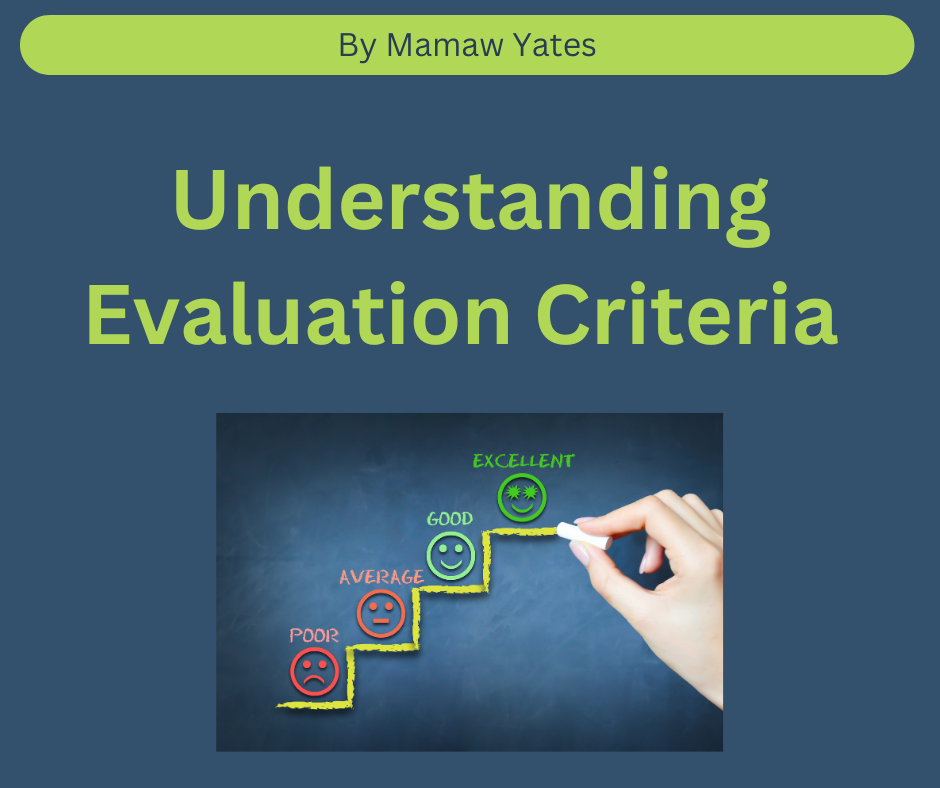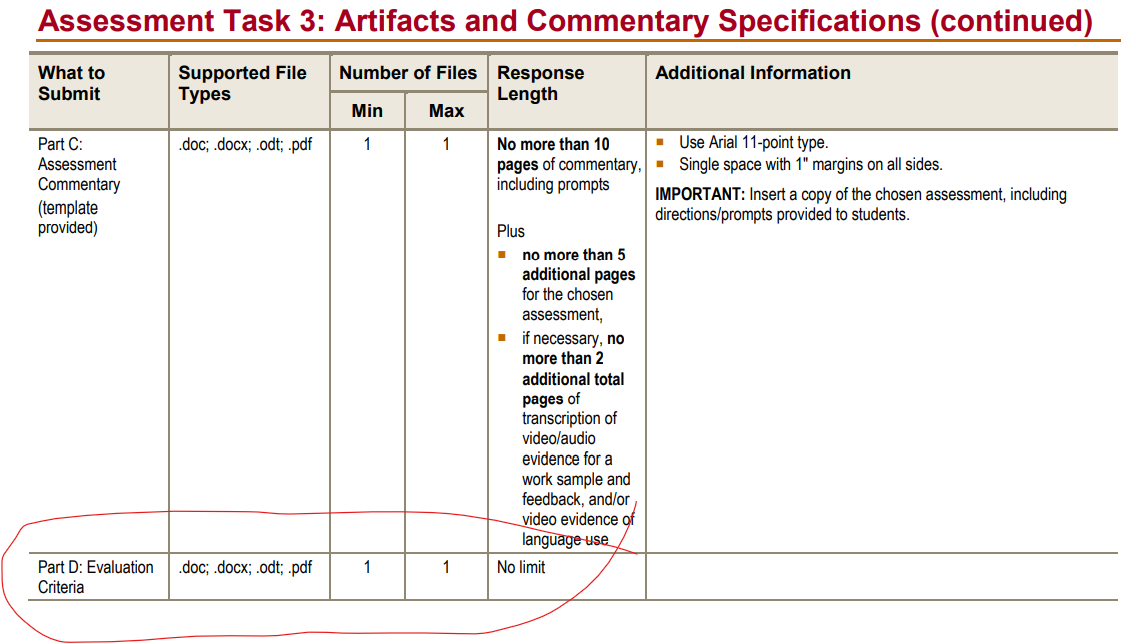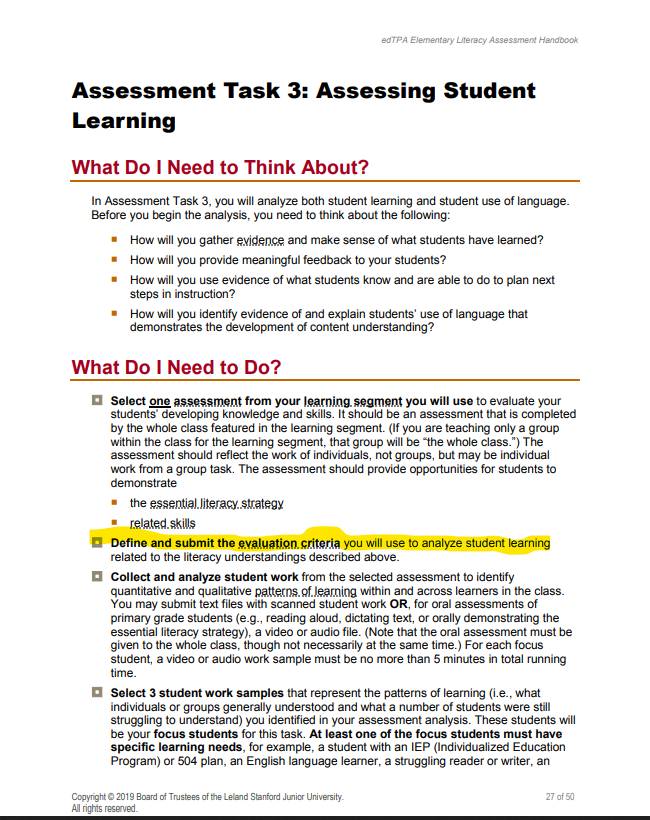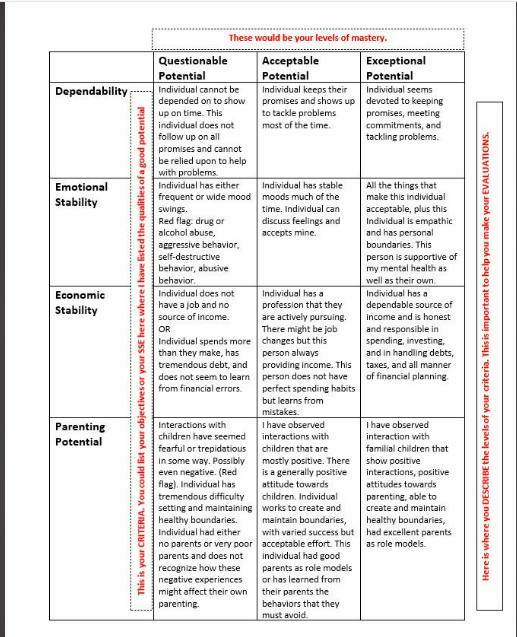
Need help with Task 3 of the edTPA? Check out my resources by clicking here.
Here you are humming along with your edTPA when all of a sudden, at the very end of Task Three, you see an artifact that you were unaware you needed... Part D: Evaluation Criteria. (This is also required in Task Four, for those who have four task handbooks.)

What the Heck are Evaluation Criteria?
This term is defined in your Glossary of the handbook. The image below was snipped from the Elementary Literacy 2019 handbook. Like many definitions, it's a little hard to understand but, basically, your evaluation criteria would the QUALITIES (criteria) that you use to JUDGE (evaluate) your students' work.

"But, Mamaw, don't we just grade the work?"
Nope. Sorry.
In schools, we have a lot (too much, IMO) of emphasis on grades. Grades were devised as a method to communicate to students (and their parents) about academic achievement. Unfortunately, grades do not give much information about specific LEARNING because they tend not to be focused on any one objective.
Take a minute to look through your edTPA rubrics and see if you see anything, anything AT ALL, about grades or points that you assign students in Task Three. You will see nothing. Instead, in your handbook directions for Task Three you are directed to "define and submit the evaluation criteria you will use to analyze student learning." Please note that this is the second step of Task Three! You should define your evaluation criteria immediately after creating the assessment.
To define your Evaluation Criteria, you need to be thinking about levels of mastery and the criteria that you will use to evaluate that mastery. When you analyze whole class learning you are not to think about how many students got A's or B's or how many students got 8 out of 10 points. Instead, you should record data pertaining to levels of mastery.
In this video, I discuss selecting your assessment and defining the evaluation criteria (the first 2 steps of Task Three).
Defining your Evaluation Criteria
To use a fun analogy, let's pretend I am listing the criteria needed to evaluate potential spouses and I will walk you through creating a rubric.
First of all, I will list the characteristics (criteria) that matter to me in a spouse:
Faithful, dependable
Economically stable
Emotionally stable
Good Parenting potential
Once I have my criteria, I then begin describing (defining) the criteria at different levels. First I write descriptions of what an acceptable spouse would look like. Knowing what acceptable looks like, helps me define what unacceptable or exceptional would be. Once I have defined the criteria for different levels, I can use this tool to evaluate potential spouses.
Notice that in the rubric I have made that there aren't scores. It's all about levels of mastery.

Now you try it!
Try your hand at defining your Evaluation Criteria. It does not have to be a rubric; you might find another method that will work. Just remember that you should NOT be looking at your students' work as right/wrong.
Once you have defined your Evaluation Criteria, you will use it as a tool to evaluate your students' work. Along the left, list your CRITERIA. The criteria should match with objectives and/or your Subject Specific Emphasis. (If you're Elementary Literacy, you should have your Essential Literacy Strategy and Related Skills). Across the top, put the levels of mastery that you want to identify. Then you will fill in the boxes with descriptors. What do you feel is acceptable work? Start with what is acceptable. That helps you identify what is not acceptable and then you can identify what it might look like to exceed your expectations.
I discuss many examples of Evaluation Criteria in this video:
You can do this! Don't let edTPA stand in your way!!
Mamaw Yates
P.S. Papaw Yates has exceptional levels of mastery on all of these criteria. He and I got married in 2019 after years or trial and error with other folks.
Click here to visit my TpT Store!
Click here to follow me on TikTok
Click Here to Follow Me on Pinterest
Click Here to Follow Me on Instagram
Click Here to Follow Me on Facebook
Click Here to Follow Me on YouTube
